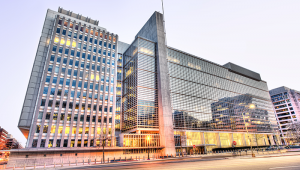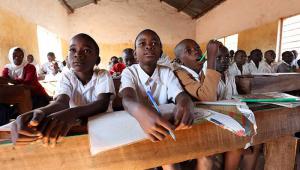The Washington-based bank has warned in a report that without change children born today in the GCC will only attain between 58% and 67% of their full health and learning capacity.
While Human Capital Index scores in the GCC are higher than average across the Middle East and North Africa, they lag behind countries with comparable incomes such as Germany, Ireland and Singapore, the bank said.
“Working closely with the GCC, we have seen strong political will from some countries to achieve their country ‘vision plans’ with real, tangible outcomes on the ground,” said Issam Abousleiman, World Bank regional director for the GCC.
“But economic transformation is a long-term endeavour, requiring steadfast, predictable implementation. While the road ahead is challenging, it is possible; and we are committed to taking this journey together.”
The World Bank report, Building the foundations for economic sustainability: Human capital and growth in the GCC, commended reforms made towards improving the business environment in the Gulf region.
However, it says that to achieve more sustainable growth, GCC countries need to continue supporting fiscal consolidation, economic diversification, and increasing private sector-led job creation – especially for women and young people.
The report calls for accelerating human capital formation by adopting a “holistic” governmental strategy to improving health and education, which it says are the most pressing challenges in the GCC.
The World Bank recommends that countries invest more in early childhood development to give children a strong learning foundation, and prepare youth better for the future by improving education outcomes, linking education to labour needs, and reducing health risks.
The human capital of the adult population could be improved by emphasising lifelong learning, increasing female participation in the workforce, preventing chronic diseases and injuries, and changing some social norms and behaviours.
The World Bank predicts economic growth in the GCC region rising to 2.1% this year then accelerating to 3.2% in 2020 before stabilising at 2.7% in 2021.














